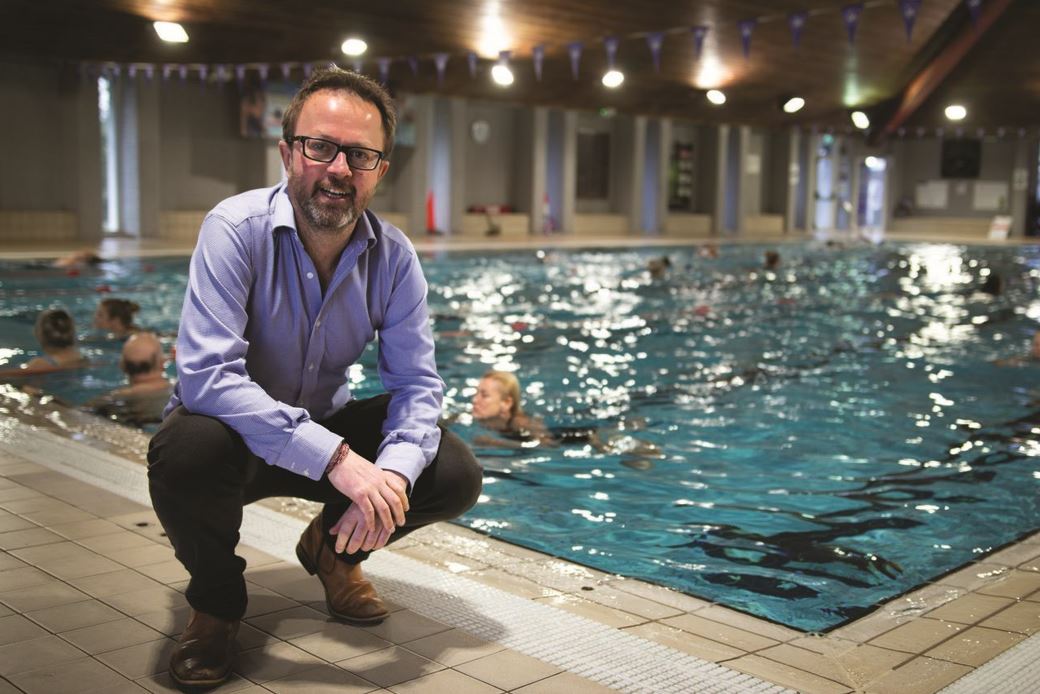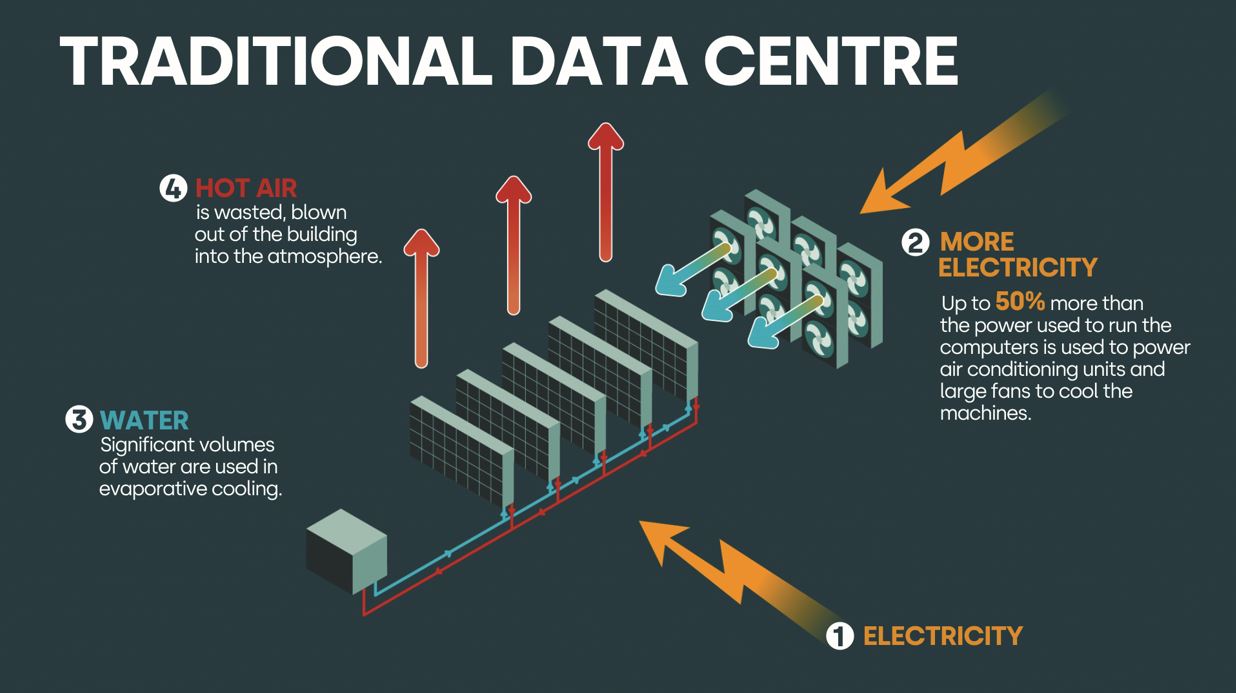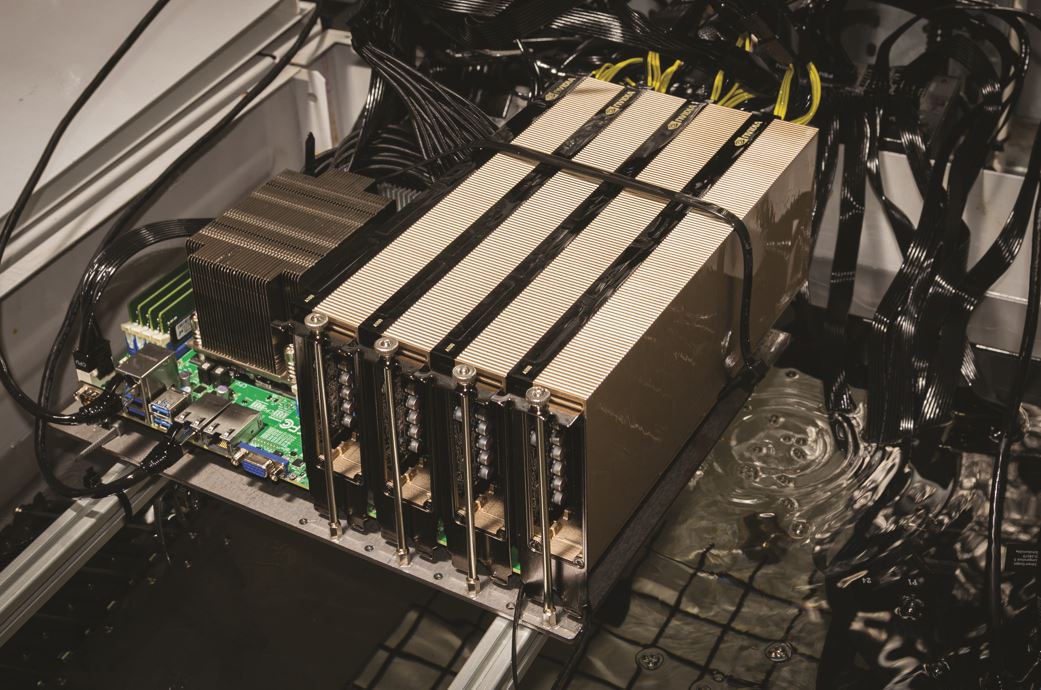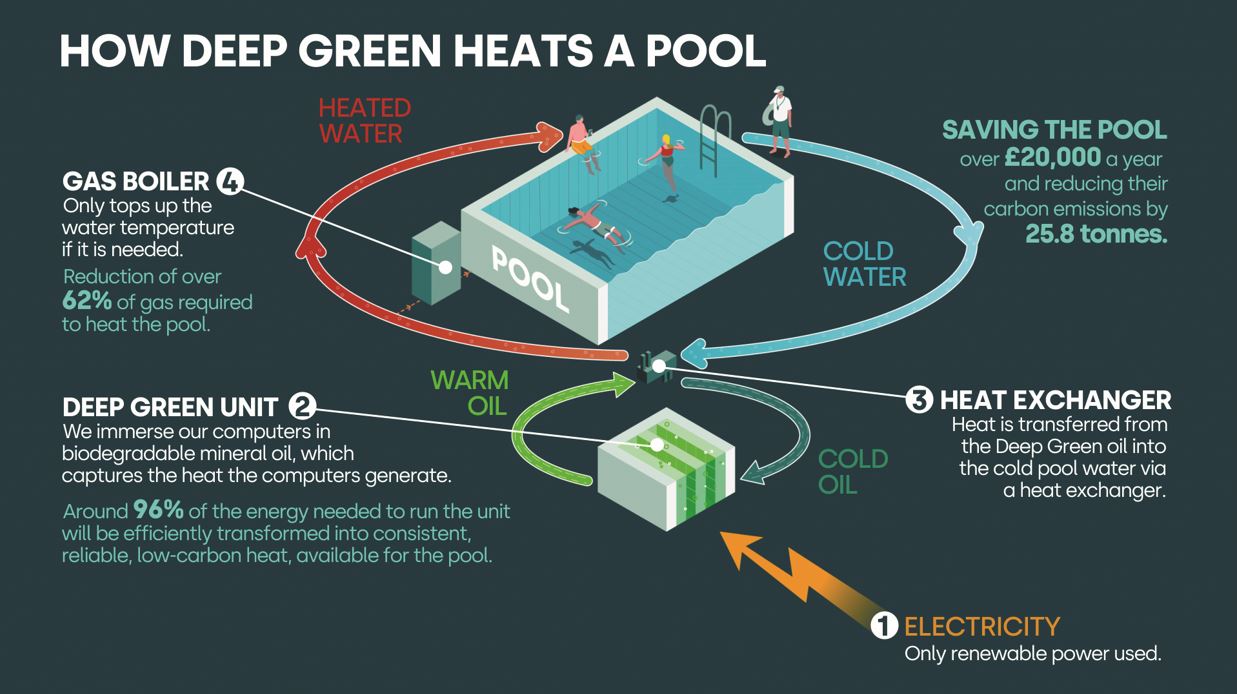
Exmouth Leisure Centre is the first site in the country to benefit from heat-recapture by cloud data centres slashing carbon emissions and saving over £30,000 a year.
In a UK-first, brand new technology is supplying free heat to a public swimming pool to cut energy bills and reduce its reliance on carbon-intensive fossil fuel boilers. British tech start-up, Deep Green, is behind the ‘digital boiler’ technology. Founded in 2016 by Mark Bjornsgaard (pictured above), an entrepreneur with an interest in technology and energy, Deep Green is a 100 per cent self-funded and uses the latest in ‘immersion cooling’ technology to extract heat from on-site ‘edge’ data centres to provide free hot water for swimming pools and other industries. The idea for Deep Green’s digital boilers came from Microsoft’s 2011 paper into data furnaces, which proposed re-purposing heat from data centres to act as the primary heat source in homes and office buildings. Following five years of research and development to perfect the technology, Deep Green now plans to spread the benefit of the technology to as many communities as possible.
reduce energy bills
Deep Green’s digital boiler is a set of computers (a mini data centre) that are adapted to be immersed in inert oil. This oil captures the heat the computers generate. The oil is pumped through pipes to a heat exchanger where the heat is transferred to the cold pool water, raising its temperature. This reduces the pool’s reliance on their gas boiler to warm the pool - saving them costs on energy bills and reducing their carbon footprint. Around 96 per cent of the heat generated by a Deep Green digital boiler is re-cycled. Exmouth Leisure Centre in Devon is the first site in the country to benefit from heat-recapture by cloud data centres. The surplus heat donated to the leisure centre by Deep Green’s unit will reduce the pool’s gas requirements by 62 per cent, saving them over £30,000 a year and reduce their carbon emissions by 25.8 tonnes. “Deep Green’s innovative technology will dramatically reduce our energy bills and carbon footprint, meaning we will continue to be a key asset for the local community. We are already seeing the benefit. I’m certain this will transform leisure centres up and down the country for the better,” said Peter Gilpin, CEO of LED Community Leisure, the charitable trust which operates Exmouth Leisure Centre on behalf of East Devon District Council. The installation contains 12 servers of the highest grade computer equipment and is able to support a number of computing services such as cloud services, artificial intelligence, machine learning and video rendering.

making use of waste heat
"Data is critical to modern society and demand for data centres is growing exponentially. However, this comes at a cost. Current data centre infrastructure is inefficient, using a huge amount of energy and generating a vast amount of waste heat. Yet, at the same time, there are many businesses that need heat and face increasing energy bills,” says Mark Bjornsgaard, CEO of Deep Green. “By moving data centre from industrial warehouses into the hearts of communities, our digital boilers put waste heat to good use, saving local businesses thousands of pounds on energy bills and reducing their carbon footprint. Pools are just the start and around 30 per cent of all industrial and commercial heat needs could be provided by this technology. “Organisations that are serious about supporting society and reducing their carbon emissions should not forget the massive impact of their computing needs. Deep Green now provides an answer.” The company has partnered with Swim England, the national governing body for swimming in England, which has been promoting the technology to pool operators. LED Community Leisure were the first to volunteer to work with Deep Green and help to install the equipment. There are over 1,500 pools in England alone that could all benefit. According to a recent survey of ukactive members, energy costs for leisure facilities have increased by 150 per cent since 2019. “At a time when so many swimming pools are struggling with massively increased energy bills, it’s great to see pools embracing innovative solutions like this which have the potential to support facilities to operate more sustainably, both environmentally and economically,” said Jane Nickerson, CEO of Swim England. The installation in Exmouth will be followed by further installations in Bristol and Manchester. Any business with consistent heat needs, that is relying on carbon intensive fossil-fuel boilers, could benefit from Deep Green’s free heat, says Bjornsgaard. “The future of the technology is a move to embed data centres into the fabric of society. Local data demand could be delivered from local modular data centres, like Deep Green’s, which in turn, could provide the heating needs of local businesses and reduce their carbon footprint in the process. The work of the local council, processing administrative records online, could heat the local swimming pool; a local teenager playing online games could melt chocolate in a local factory. In total, we estimate 30 per cent of all industrial and commercial heat needs could be provided by Deep Green Digital Boiler technology.”

